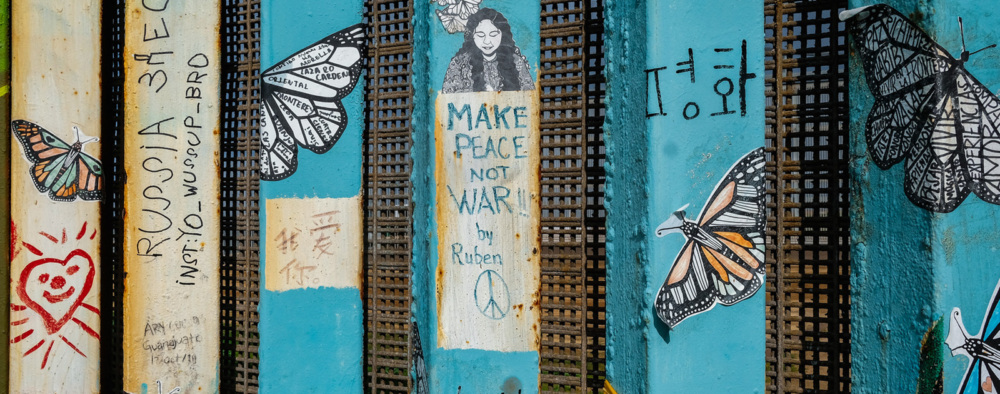
Justiça de gênero, segurança e bem-estar
Justiça de gênero, Poder da juventude
This story was originally published in Alliance Magazine.
The reality, however, is that the social sector is not moving quickly enough to include children and youth in their programming – whether this is be at the design phase, in decision-making processes, or after implementation. Youth participation is not just a matter of programmatic relevancy, nor should it be a tokenistic endeavor. It is critical to support – and sometimes step aside for – children and youth, because many are already changemakers within their communities.
Last week, the Childhood, Gender, and Youth on the Move conference in Tijuana, Mexico provided further insight for funders whose works supports youth leadership. In a Youth Promotion Strategy session, two social shifters and youth activists Melissa Rabanales (Agencia Ocote) and Monseratt Angulo (ReverdeSer Colectivo) shared some of the barriers that continue to stymie youth participation in social progress. Here are four reflections I took away:
We can no longer promote the cliché that youth represent the leaders or workers of the future. In reality, youth are risking their lives and safety as social leaders as they denounce the injustices and corruption all around the world, where most adults continue to be the silent majority. In places such as Mexico, Guatemala, and Nicaragua, college students have been the driving force to criticize systemic corruption, inequality, and the pernicious dissolution of democracy. This is not only happening in digital spaces; they are taking their commitment and courage to the streets and public places. Many youth-led groups have been forced into exile from their own governments, far away from their families and with their futures put on hold indefinitely. This generation is not apathetic; youth today are one of the most politically active groups. Our present and future realities depend on them.
Adultcentrism refers to an asymmetrical power relationship between adults and youth, where the first group is viewed as superior and more authoritative than the latter in terms of their knowledge, experience, and understanding. In my experience at GFC, adultcentrism is a global phenomenon that exists in most working cultures across the world, not just in Latin America.
We can also no longer think of adultcentrism as a binary concept, where you either are ou aren’t guilty of adultcentrism. We need to look at it as a scale. We should reflect on how we continue to perpetuate adulcentrism through our daily practices. At the event, there were more than 120 activists representing 75 organizations gathered in Tijuana, Mexico. This was a great feat for migrant children and youth; however, it is quite telling that fewer than 8 people participated in the session on youth promotion. We all have a long way to go.
First, does your organization have practices and systems in place to collect feedback from the children and youth your programs are designed to serve? Second, what are you doing with that feedback? Are you integrating it into your organization’s programming? This means that your organization is not simply asking children and youth to share their experiences and opinions, but it’s also finding ways to integrate their feedback in decision-making processes. Better yet, organizations should aspire to create systems in which children and youth are sitting at the same table and actively participating where key decisions are being made. A few organizations and foundations are beginning to make concrete steps toward this largely uncharted area, but we all need to collectively make this a priority.
Foundations, grantmakers, and NGOs need to better understand how youth are organizing, what tools they are utilizing, and the opportunities and forms of resistance to which they have access. How can we – from global centers – support their organic and committed passion for social justice? And, when do we need to step aside so they can continue to do the great work they do, in which many have risked their safety and their lives for values and truths critical to our society? From my own experience, I can tell you how difficult it is to find financial support for youth-led groups. Across the world, civic spaces are shrinking, but this is not deterring youth activism, and we should find ways to better support their efforts. They need medical support, humanitarian aid, refuge, psychosocial support, and financing. Much of youth-led groups procure resources and funding from individual givers from their community, who are often afraid of being publicly associated with youth-led groups and consequently targeted by repressive governments. Another critical barrier is that the social sector is becoming overwhelming focused on evidence-based models with clear theories of change and results frameworks, which is not applicable to many of the youth-led groups who are first starting out.
I will leave you here with these four thoughts – and encourage you to continue the conversation about how we can shift the power to youth in the social sector.
The header photo was taken at the Gender, Childhood, and Youth on the Move convening. Photo © Jeff Valenzeula.
